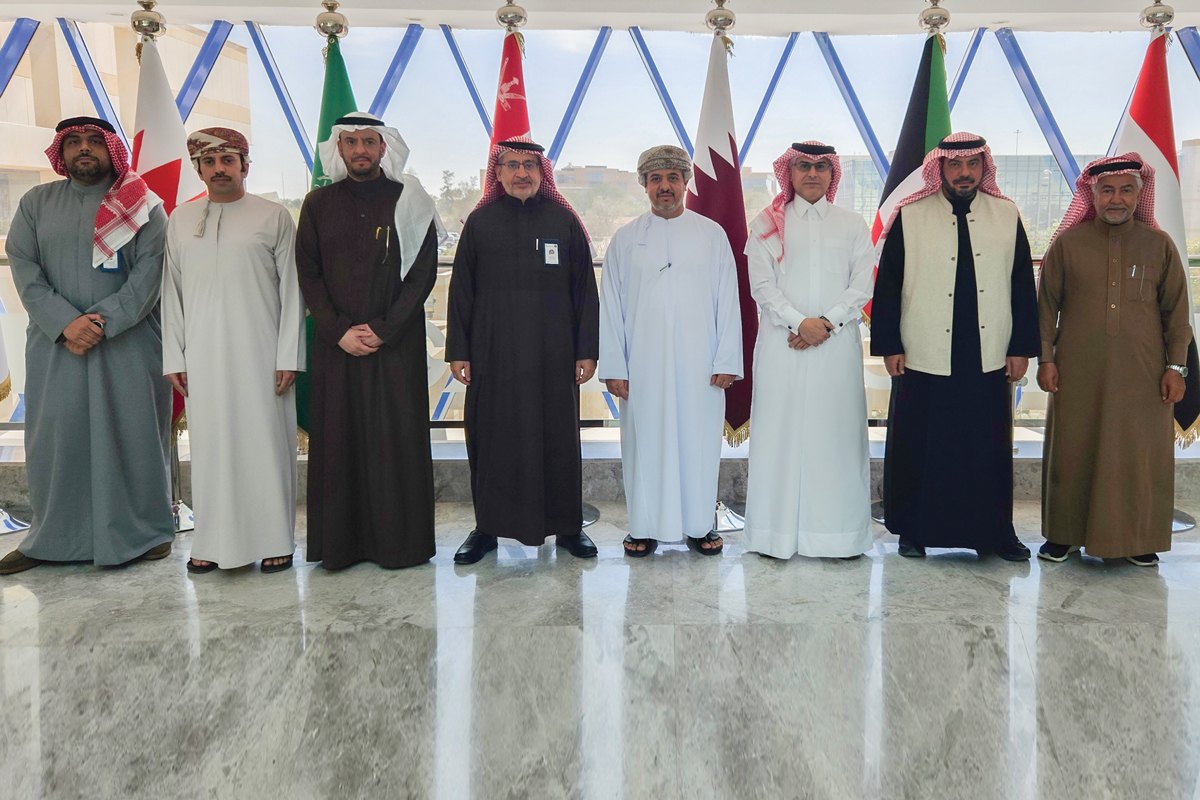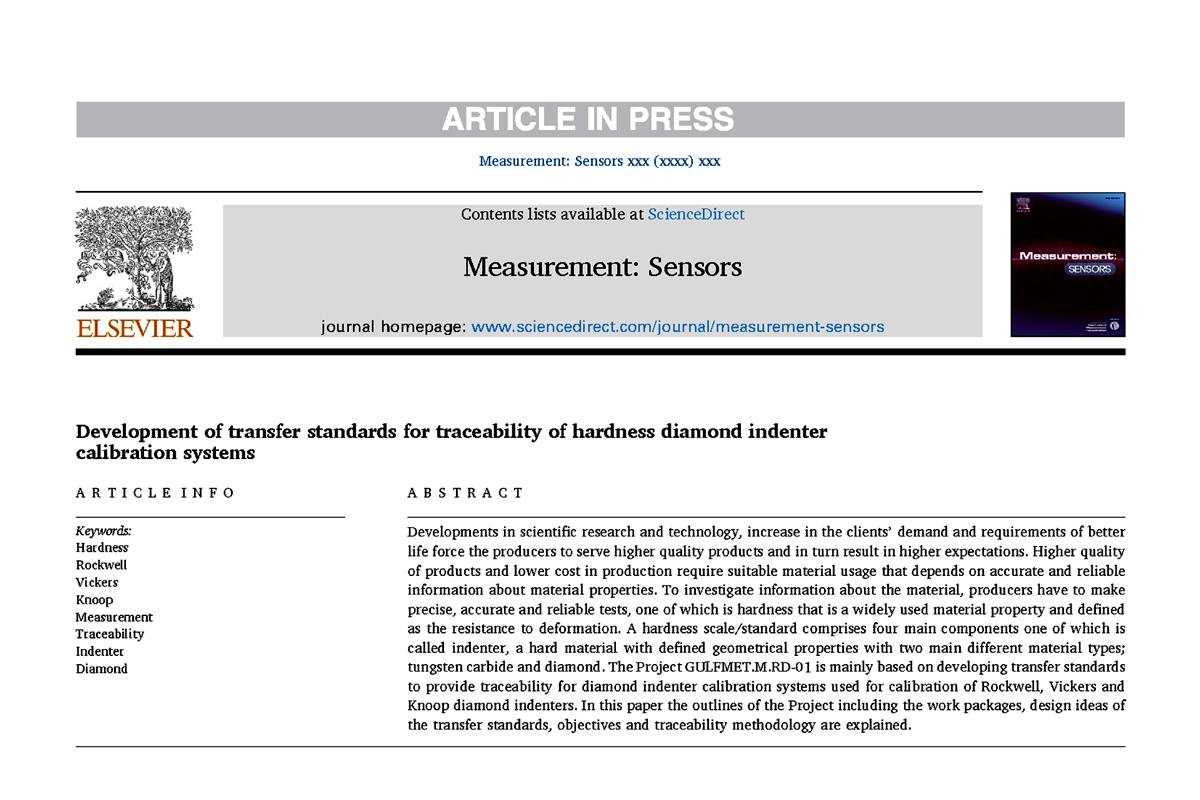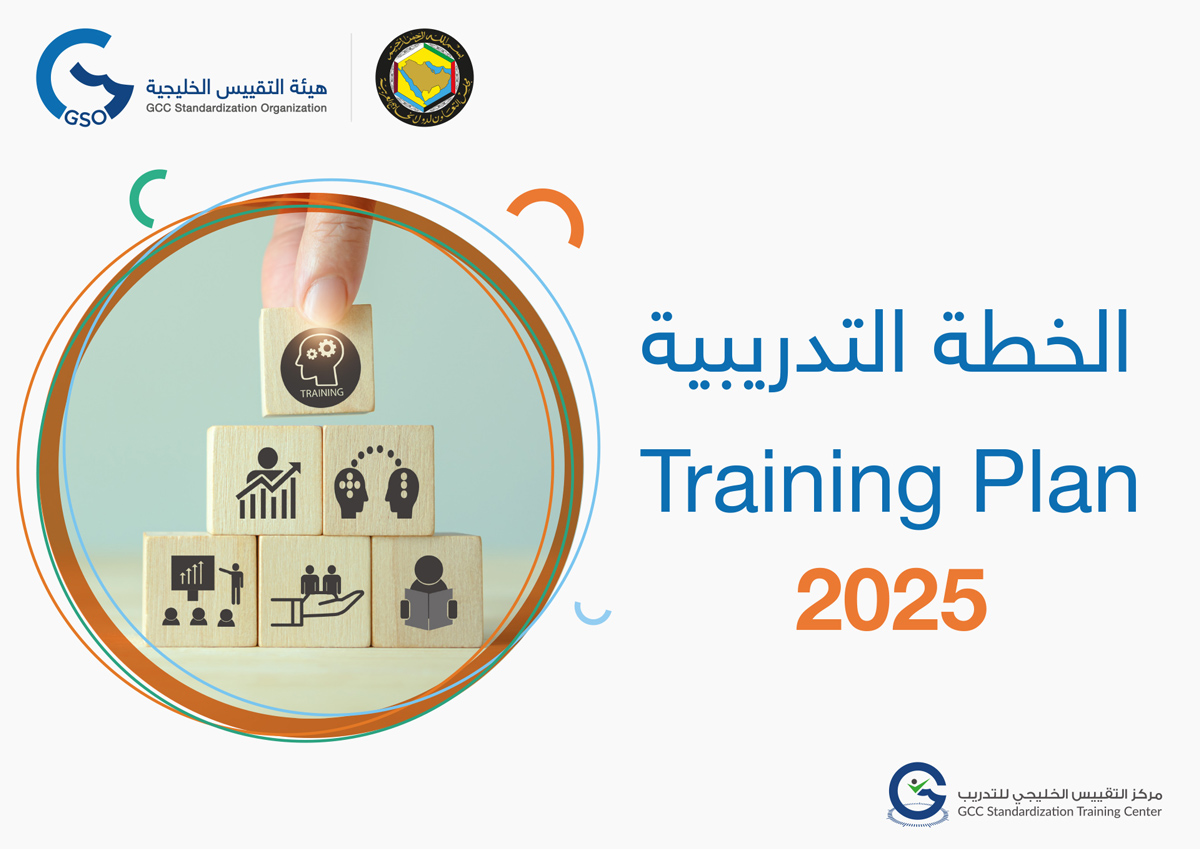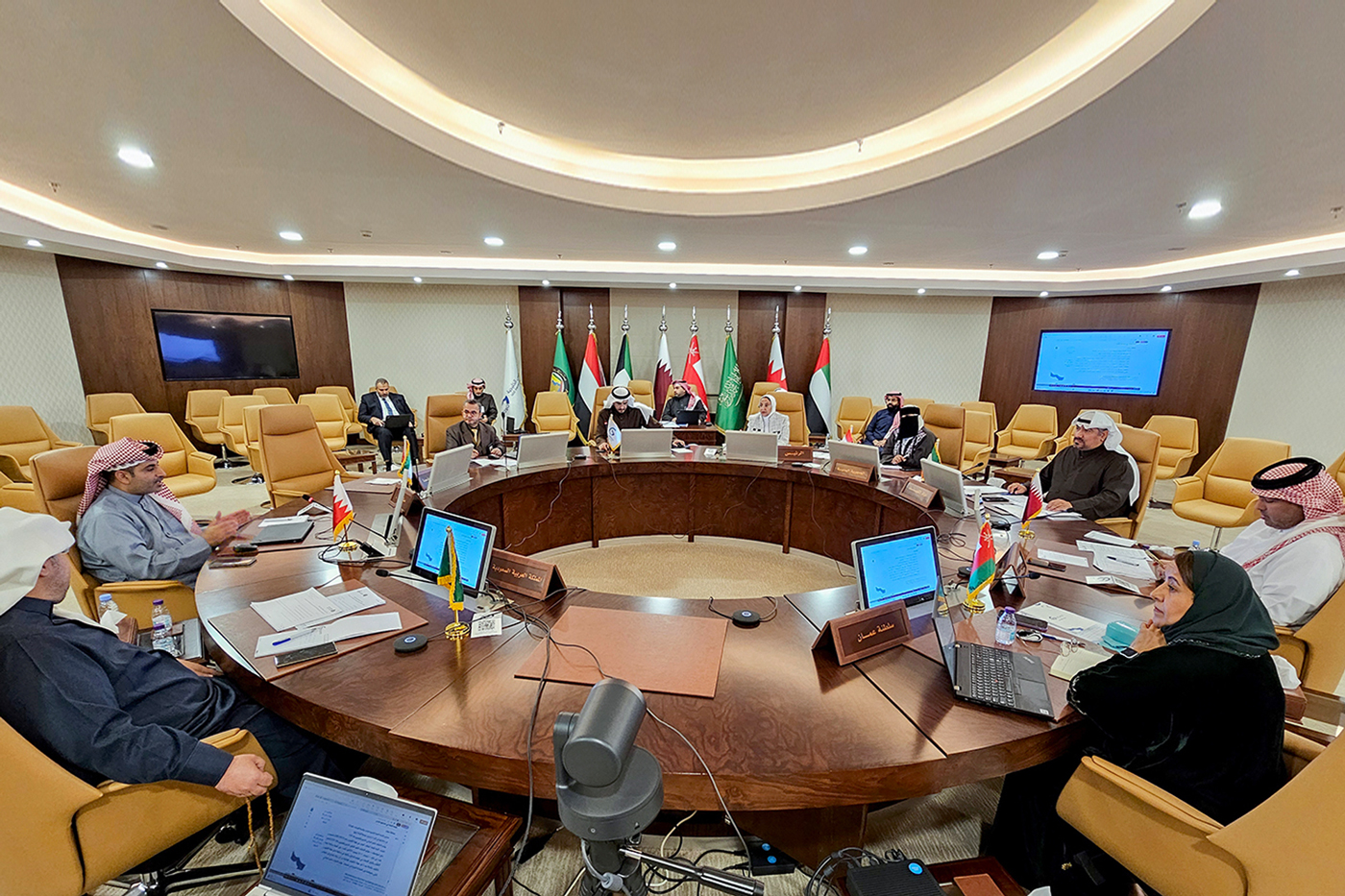GSO Receives the Secretary General of ISO
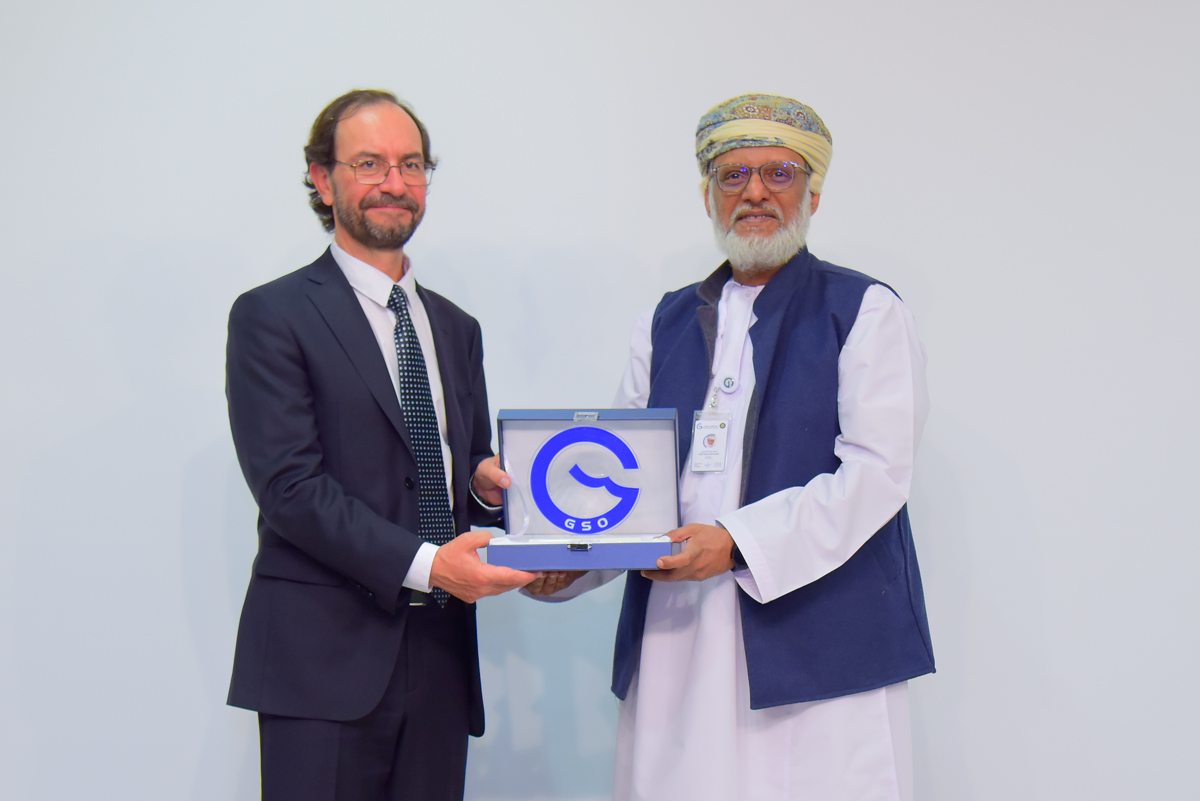
The GCC Standardization Organization (GSO) received, at its headquarters in Riyadh, His Excellency the Secretary General of the International Organization for Standardization (ISO), Mr. Sergio Mujica, on Wednesday, 10 January,2024.
During the visit, a bilateral meeting was held between GSO officials and ISO Secretary-General, during which current areas of cooperation and opportunities for future cooperation, were discussed.
At the beginning of the meeting, His Excellency President of GSO, Saud bin Nasser Al-Khusaibi, welcomed the Secretary-General of ISO, and hailed the distinguished relations between the two Organizations.
On his part, His Excellency the Secretary General of ISO expressed his happiness with the visit, which is the first to GSO, praising the strategic partnership between GSO and ISO within the framework of the MoU signed between the two sides in 2017, and within the framework of the regional partnership policy approved by ISO Council.
At the meeting, Dr. Zaki Al-Rubai, Head of the Marketing and International Relations at GSO, delivered a comprehensive introductory presentation about GSO’s role, tasks, and its most important achievements at the Gulf, regional, and international levels. He also tackled the existing areas of cooperation with ISO, which included adopting and translating the International Standards, supporting technical capacity building programs, electronic interconnection, strategic alignment with GSO 2025 strategic plan and ISO 2030 strategic plan, and GSO effective participation in supporting the ISO regional partnership policy.
During the meeting, discussions also tackled the most important future cooperation opportunities and issues of common interest, notably climate change, the Sustainable Development Goals 2030, which contribute to supporting and facilitating trade exchange, promoting industries, enhancing competitiveness, protecting consumers, public health and the environment, safeguarding the interests of member states, and supporting their regional and international stances.
Following the end of the meeting, GSO organized a lecture entitled “The Role of Standardization in Promoting Economic Development and Sustainability in the Gulf Common Market,” presented by His Excellency Mr. Sergio Mujica, Secretary-General of ISO, with high profile participation of officials and decision makers, headed by His Excellency Mr. Khaled Al-Sunaidi – Assistant Secretary-General for Economic and Development Affairs at the General Secretariat of the Cooperation Council for the Arab States of the Gulf, His Excellency Eng. Saud bin Rashid Al-Askar – Deputy Governor for Conformity and Quality at the Saudi Standards, Metrology and Quality Organization (SASO), His Excellency Mr. Sulaiman Al-Dakhil – Director General of the Gulf Health Council, and His Excellency Engineer Mutaib Al-Mizani – General Director of the Gulf accreditation Center, His Excellency Mr. Fahd bin Saleh Al-Khalif – Executive Advisor to Gulf Radio and Television, and the delegations accompanying them, in addition to a number of standardization ambassadors and specialists in the relevant authorities.
In his opening welcoming speech, His Excellency Mr. Saud Al-Khusaibi stressed that the importance of organizing this lecture falls within the framework of the role of GSO in implementing the economic agreement of the Gulf Cooperation Council States, elimination of technical barriers to trade and facilitating flow of intra-trade, to accomplish the Gulf common market, customs union and the single entry point by unifying standardization activities, and following up on their implementation and commitment, in cooperation and coordination with the national standardization bodies in member states, in a way that effectively contributes to implementing the GSO plan and directions and implementing its strategy, and thereby serving member states in developing and enhancing quality infrastructure, and working to implement international best practices.
His Excellency added that GSO is striving to pursue its tasks and strengthen its position on the Gulf, regional and international levels based on its strategic vision 2025 to be the reliable regional house of expertise for standardization activities and the first enabler of the Gulf common market, through developing and adopting standards, harmonizing conformity assessment procedures, and supporting the metrology infrastructure to ensure safety of products, efficiency of services, and the ease of their movement in the Gulf common market, and consumer protection, in order to improve the quality of life in member states and strengthening their economies to compete in global markets, within the framework of MoU and technical cooperation agreements with a number of corresponding Organizations.
On his part, His Excellency the Secretary General of ISO hailed the strategic partnership between GSO and ISO, and stressed its effective role at the regional level, and its contributions to promoting and supporting international standardization.
His Excellency reviewed the role of ISO in issuing International Standards being the global language of commerce with the agreement of 170 member states of ISO. His Excellency also discussed the role of standards in quality of life, supporting the Gulf common market, achieving economic development, and enhancing the competitiveness of products in the Gulf and global market.
His Excellency concluded by reviewing the strategic partnership between GSO and ISO, emphasizing GSO unique experience in adopting more than 17,000 International Standards as unified Gulf standards by all member states of GSO, which in turn supporting international standardization, contributing effectively to facilitating trade exchange, and enhancing standardization activities through harmonizing standards, capacity building programs, exchange of information, best practices, knowledge programs, and experts.
The lecture comprised an open session for dialogue between His Excellency the Secretary-General of ISO and the participants. The lecture stressed the importance of strengthening the existing cooperation between GSO and ISO, especially with regard to smart standards, harmonizing technical committees, supporting the Arabic content of standards, capacity building programs, and the importance of ISO contribution in carrying out technical studies to measure the impact of applying standards on the economy and GDP of member states.
It is worthwhile mentioning that the International Organization for Standardization (ISO) is an independent, international, non-governmental organization whose membership includes 170 national standards bodies. It was founded in 1946, where 65 delegates from 25 countries met to discuss the future of international standardization. In 1947, ISO officially came into existence with 67 technical committees.
Through its members, it brings together experts to exchange knowledge and develop voluntary, consensus-based and market-relevant International Standards that support innovation and provide solutions to global challenges. ISO has issued so far (25135) International Standards, covering many products, services, technology, food safety, agriculture, and health care.
